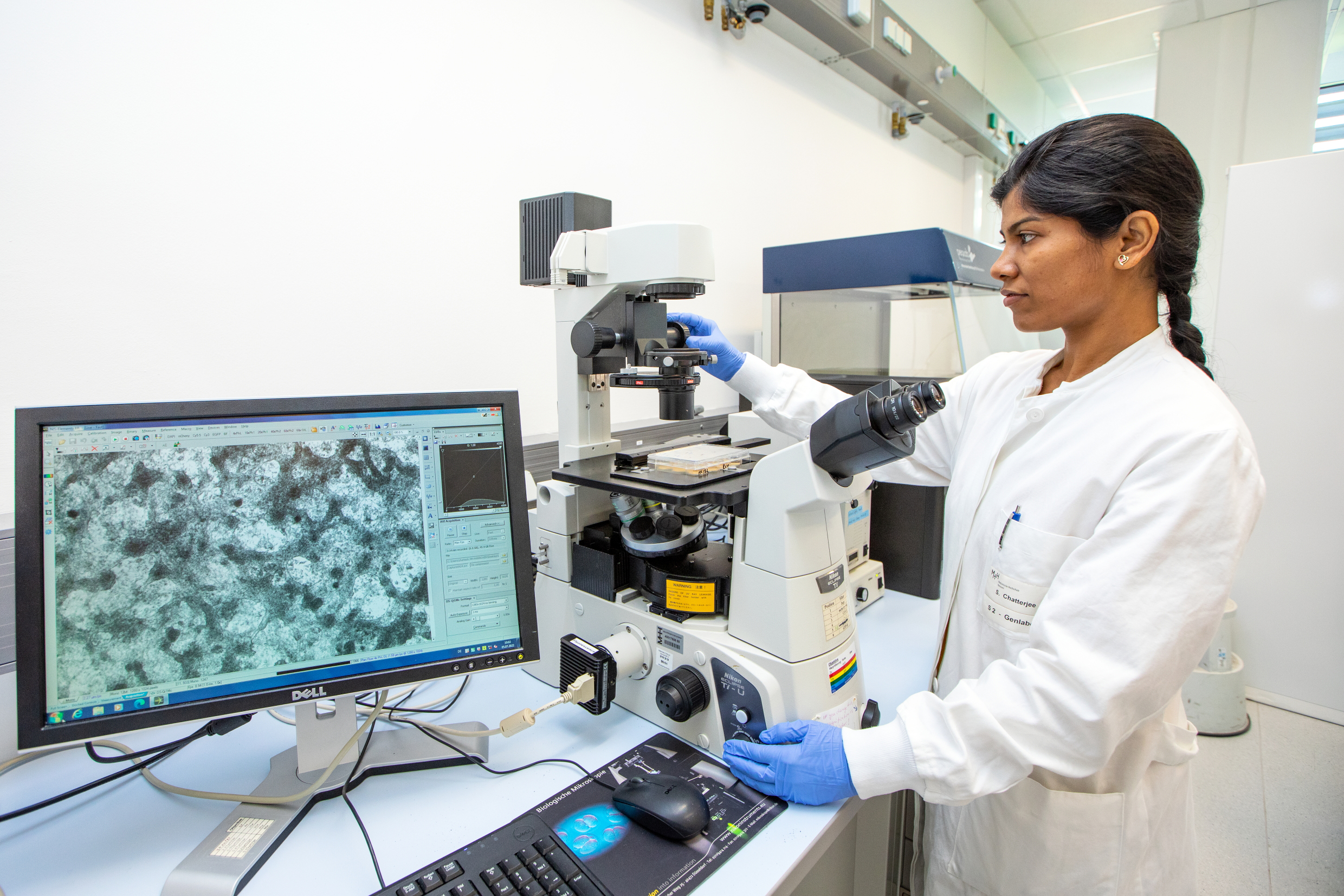Young scientist Dr Shambhabi Chatterjee receives the Science Award of the Dresden Cardiovascular Days 2024

Honoured for her research into pathological enlargement of the heart muscle: Dr Shambhabi Chatterjee. Copyright: Karin Kaiser / MHH
Dr Shambhabi Chatterjee is researching how heart disease is linked to age. The molecular biologist works at the Institute for Molecular and Translational Therapy Strategies and is particularly interested in hypertrophic cardiomyopathy. In this form of heart failure, the heart muscle is abnormally enlarged, which impairs the heart's pumping capacity. If the disease goes unnoticed for a long time, it can lead to life-threatening consequences such as heart failure. For her project "Novel targets to treat hypertrophic cardiomyopathy in cardiomyocytes with short telomeres", the postdoctoral researcher has been awarded this year's research prize of the Dresden Cardiovascular Days (DHKT). The award, which is endowed with 20,000 euros, is presented annually to promote young scientists. The aim is to support ongoing scientific projects from the entire cardiovascular field, both from basic research and clinical research. This year, after a long time, a scientific research proposal was once again selected for the award.
Telomerase protects the heart
After her academic training in India, Dr Chatterjee decided to enrol in the PhD programme "Regenerative Science" at the Hannover Biomedical Research School (HBRS) of the MHH. In her doctoral project, she investigated the role of telomerase in the heart. Telomerase is an enzyme that plays an important role in the maintenance of telomeres, the "protective caps" at the ends of our DNA strands. "Every time our cells divide, the telomeres shorten," explains Dr Chatterjee. "This shortening is a natural part of the ageing process and is thought to contribute to the development of diseases that are more common in old age, such as Alzheimer's and heart disease." Telomerase counteracts this process by adding new DNA to the end of the telomere and thus lengthening it. As a result, the cell retains its ability to divide and does not age. In adults, this enzyme is normally switched off and is only active in stem cell niches. However, switching telomerase back on appears to help prevent age-related diseases and protect the heart.
Relationship between short telomeres and the powerhouses of the cell
In her new research project, Dr Chatterjee is now focusing on the relationship between telomerase and the mitochondria - the "power plants" of our cells. "I am delighted to be able to use the DHKT Research Award funding to elucidate the role of short telomeres in cardiac hypertrophy," says the young scientist. When telomeres become very short in the course of life, they communicate with the mitochondria. This leads to a complex series of signalling pathways and can trigger DNA and cell damage that destroys the cells. Telomerase could help to prevent this damaging relationship. For her study, the molecular biologist is using heart muscle cells derived from human stem cells. These serve as a clinically relevant platform for further testing drugs that have already been approved in the USA. She also wants to find new drug candidates that could stop or even reverse the pathological enlargement of the heart muscle.
Text: Kirsten Pötzke